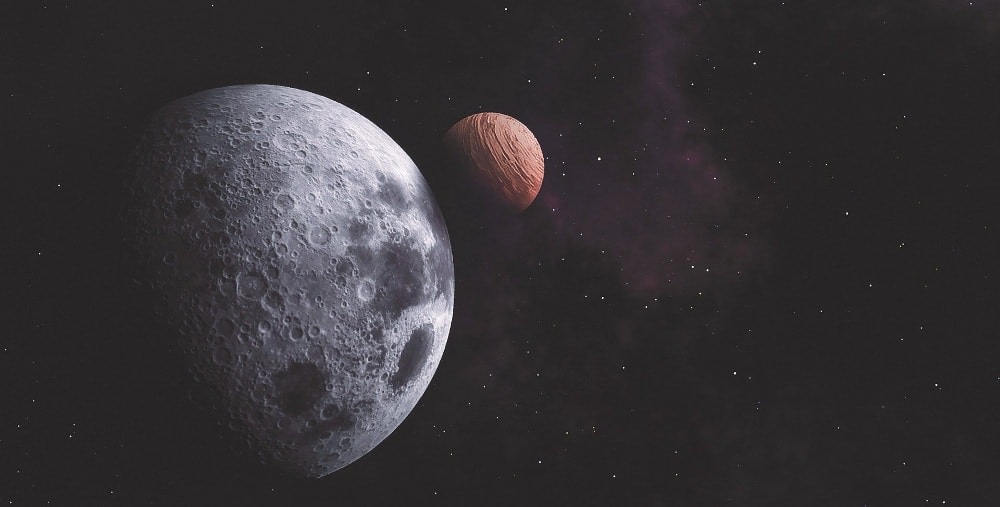Let's introduce you to Vedic astrology. There is a possibility that you could have heard this system called by other names, such as Hindu, Indian, or Tantric astrology. You might be wondering, "No matter what it is called, how does it differ from Western astrology?" There are 3 key ways to better understand this system: its history, accuracy, and signs.
Vedic Astrology History
The first records of Vedic astrology date all the way back to 5,000-10,000 BC. Rulers once used Vedic astrology to help them plan and map out how to rule their kingdoms and predict how they would do in battle.
Vedic is derived from the Sanskrit word, Jyotisa, and translates to 'light.' Vedic is referred to as "the eyes of the Veda," allowing one to learn knowledge about their path in life and the karma connected to them. This is a sacred science that studies and represents centuries of ancient wisdom that has been passed down through generations. Astronomers carefully map the positions of planets, heavens, constellations, and other significant astrological elements. They believe that these elements all hold a powerful authority over one's life.

Vedic Astrology Accuracy
Vedic astrology's accuracy in predicting events is much higher than that of its Western counterpart's. As the Earth travels around the sun, the tilt of the Earth wobbles slightly. Every 72 years, there occurs approximately a 1-degree shift. The constellations have been shifting ever so slightly over the years, making Vedic interpretations more precise in their placement of signs.
Vedic astrology also encompasses 6 different branches in its chart interpretations:
- astronomical observation and calculation;
- natal, horary, and electional astrology;
- omenology.
Due to its complex system of analysis, Vedic astrology can predict planetary periods and what will happen with greater precision.
The astronomers map out the moon that was ruling at the time of your birth and use that to predict what the most influential powers will be at various points of your life. Have you ever had that weird feeling that the sign your horoscope says you are supposed to be might not actually represent you? Well, it might be advantageous to gain a deeper comprehension of your Vedic natal chart. It is recommended to see a professional or someone experienced in Vedic astrology chart interpretations.

The 12 Vedic Signs
The 12 Vedic astrology signs and their dates will be a better representation of the actual sun’s actual orientation in relation to the moon and stars on your birthday.
Aries: Mesha
Individuals who are born between the dates of April 13 and May 14 are a Mesha sign, which is equivalent to Aries. Mesha has the potential for endless creativity, ambition, and expansion. They also tend to be a little bit on the fiery side, wanting control over situations, and notoriously extroverted.
Taurus: Vrishabha
Those whose birth dates are between May 14 and June 14 are identified as Vrishabha, or the Vedic equivalent of Taurus. Vrishabha is represented by the bull. These signs are more practical, however, they seek luxurious and indulgent pleasure. Vrishabha also likes to create routines and balance in their lives.
Gemini: Mithuna
Mithunas, or Gemini equivalent, are identified as those whose birthdays fall between June 14 to July 16. Mithuna is highly flexible, possessing the ability to flow through situations as they deem necessary. They love to partake in conversations and are quite insightful and thoughtful in their gestures.
Cancer: Karkata
Western Cancer's equivalent in Vedic astrology is Karkata, the sign of people born between July 16 and August 16. These natives value their family connections and the solace that can be found within. Karkata is known to be very emotional. They hold a kind and nurturing role within the various groups they are in.
Leo: Simha
Those who were born between August 16 to September 16 are as Simha, a sign equivalent to Leo in Western astrology. Simha is represented by the Lion, expressing the boldness and power they portray. Outgoing and warm-hearted, Simha is bound by their loyalty and generosity. However, they can become arrogant or dramatic.

Virgo: Kanya
Kanyas are identified as having a birth date between September 16 to October 16 as associated with the traditiona Western sign of Virgo. Kanya is reflective and cautious. They have a need to keep a clean space and may feel stressed when their to-do list starts getting away from them. They hold their emotions inside, opting to help others instead.
Libra: Tula
Tulas, or Libras in Westen astrology, are born between the dates of October 16 and November 16. Tula is represented by the Scales. A balanced lifestyle is what a Tula strives to achieve every day. They tend to be realistic, joyous, and energetic. However, they can also be moody and slightly pessimistic.
Scorpio: Vrishchika
If you were born between November 16 and December 15, you are a Vrishchika, a Vedic sign very similar to Scorpio. Vrishchika is well known as the scorpion, hinting at their ability to strike when they feel their trust has been broken. They are powerful and headstrong, allowing them to be analytical in decision-making.
Sagittarius: Dhanus
Dhanus is born between December 15 and January 14 and is associated with Sagittarius in Western astrology. Marked by the Archer, these signs have a wandering soul that yearns for freedom. they are optimistic, almost to a fault, and always aspire to reach for more in life. They may not always have patience, but they enjoy being able to help others.
Capricorn: Makara
Makara natives are born between January 14 and February 13. They are associated with the Western signs of Capricorn. Makaras are often workaholics striving to produce the best work. They are confident in their abilities and it is this reason that they are able to be highly self-motivated. A Makara is also sensitive to their own and to others' needs.
Aquarius: Kumbha
If your birth date falls between February 13 and March 14, you are a Kumbha — the Vedic equivalent of Aquarius. An intelligent sign, Kumbha is innately open-minded and skillful in their craft. They tend to be more spiritual and pride themselves on being good judges of character.
Pisces: Meena
A Meena is someone who was born between March 14 and April 13. Associated with the traditional sign of Pisces, Meena is authentic and honors their relationships. They enjoy a good romance, always dreaming of their own. Represented by the two fish, they can switch from calm and collected to engaged and ready to fight.

What do you feel after reading this article?
Response
Superb
Love
Wow
Sad
Laugh
Angry